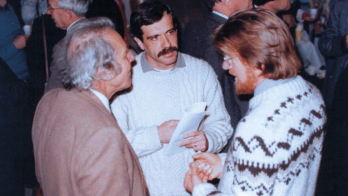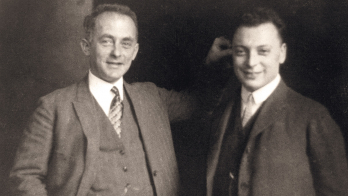By Caroline van den Brul
Imperial College Press
Hardback: £35
Paperback: £15
E-book: £11

The introduction of Crackle and Fizz sets out a trope that may sound familiar: a decade-old social faux pas between scientists and journalists at a dinner party, where the speed-dating format for presenting science was met with ire, derision and altogether not having a nice time. The claim is made that this could have been a chance to start over, to reframe science communication and realign the expectations of those involved. To do so misses out on the past few decades of development in the science-communication field, which is now reaching a reflective maturity and presence between academia, industry and media. Unfortunately, the same erasure is a leitmotif in many of the chapters that follow.
Caroline van den Brul’s credentials are impressive, with years at the helm of BBC productions and engagement workshops. This history forms the backbone of the book, setting an anecdote-per-chapter rate that reads more like an autobiography than an attempt to impart any lessons or experience to the reader. The remaining space is given over to consideration of narrative devices useful in contextualizing topics and engagement from a practitioner’s perspective. However, these are only superficially explored and offer little in variation. After many pages promoting the importance of clarity, the titular “Crackle” is eventually revealed in the final chapter to be a (somewhat forced) acronym that summarizes and distils all preceding guidance. Had this been the starting point from which each aspect was explored in depth, the tone and flow of the book may have made for a more compelling read. When used as the conclusion, it feels condescendingly simplified. It’s a shame that, considering van den Brul’s history, the final chapter is the main one worth reading.
Overall, the book feels less like the anticipated dive into years of experience, and more like a pre-lunch conference workshop. If you are in the first stages of incorporating engagement and communication into your current practice, working through each chapter’s closing questions could be of some use. Or, should you feel like refreshing your current framework, they might give you a moment’s pause and adjustment, but no more than any other evaluation.








